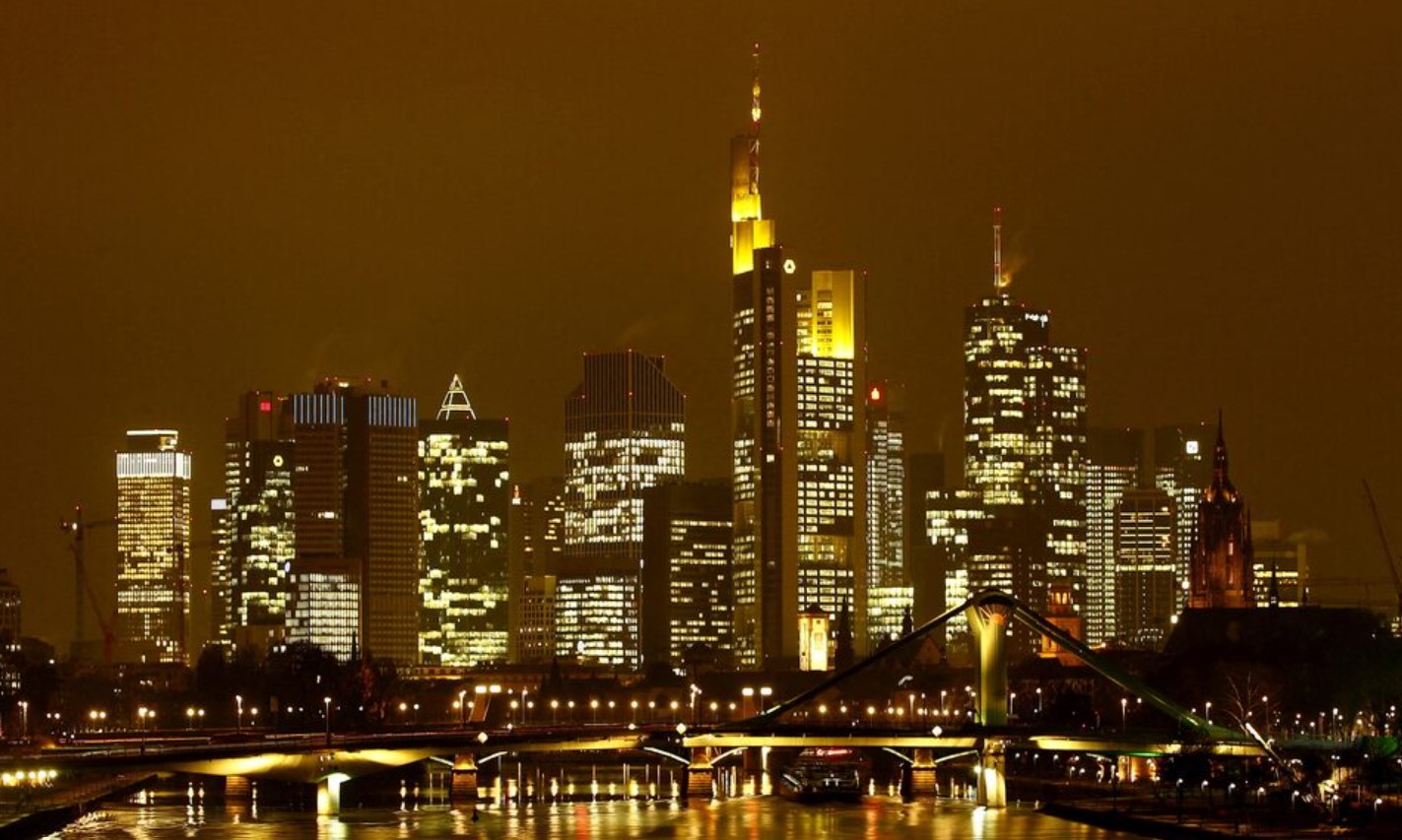Football
Falling foul again? European football clubs keep trading with Russia despite sanctions risk

Several major football clubs such as Paris Saint-Germain, Parma and Panathinaikos may have breached EU sanctions this year by conducting suspect transfer deals with Russian clubs. This trend was previously revealed by an international investigation led by Follow the Money, which has identified dozens of transfers made by teams across the European Union that have potentially violated rules around trade with Russia since its invasion of Ukraine in 2022.
Football clubs in Europe are continuing to conduct risky transfer business with Russian teams despite the danger that such deals could violate EU sanctions on Russia.
In December 2023, The Offside Deals – a joint investigation led by Follow the Money – revealed that 25 European clubs had potentially breached EU sanctions by doing transfer deals with Russian teams since Vladimir Putin’s invasion of Ukraine in February 2022.
Despite these revelations, follow-up reporting shows that further transfer business conducted this year between 14 European teams – including Paris Saint-Germain (PSG) and Parma – and clubs in Russia may have also fallen foul of such sanctions imposed by the EU.
In total, 42 potential EU sanctions-busting transfers have been made between 39 European clubs and 14 teams in Russia since the summer of 2022, according to Follow the Money’s calculations.
European football clubs risk violating sanctions on Russia if they do business with managers or owners of Russian clubs on the EU sanctions list, or if they hold onto transfer money intended for a Russian team until sanctions against the country are lifted.
Authorities and judges have not ruled on whether the clubs involved have violated sanctions. But most legal experts Follow the Money spoke to suspect that clubs have risked doing so.
Summer 2024: Record number of transfers with Russia since invasion
During this summer’s transfer window, Russian clubs conducted 49 paid transfers with clubs outside Russia, with an estimated total value of 100 million euros. Comparatively, 46 such paid transfers were done in the summer of 2023, and 40 during the same period in 2022.
About half of those transfers made this summer (24 of them), were with a club from the European Union. Teams from Germany, Spain, Italy, France and seven other EU countries transferred players to and from clubs in the Russian Premier League with a total value of about 48 million euros. Last summer, the figure was slightly higher, at 55 million euros.
The most active European team this year in terms of transfer dealings with Russia was Ferencváros in Hungary. The Hungarian champions completed four transfers with Russian clubs this year, two of which were with Spartak Moscow, whose coach previously managed Ferencváros. One of the transfers saw Dutch-Surinamese defender Myenty Abena move to Spartak for 1.2 million euros. Spartak’s owner, oil group Lukoil, is on the US sanctions list.
Some of the transfers analysed by Follow the Money involved clubs that have ties to the Russian military-industrial complex. The owners or presidents of those teams are involved in supplying or transporting the army (Spartak and Lokomotiv Moscow) or linked to the financing and deployment of Russian mercenaries and paramilitary units in Ukraine (Akhmat Grozny). Such a link existed in six transfers this summer involving EU clubs.
Follow the Money found in early 2024 that dozens of European teams, including Dutch PSV Eindhoven and FC Twente, had done business with clubs linked to Russia’s war machine.
The latest revelations by Follow the Money mark the first time that a German club – Bundesliga newcomer Holstein Kiel – has conducted a transfer that might violate sanctions against Russia. Teams from other major football countries such as France, Italy, Spain and Portugal had previously been identified as having made such suspect transfers since the Ukraine war started, and have conducted further potential sanctions-busting deals this year.
For example, France’s RC Strasbourg sold defender Gerzino Nyamsi in February for 3.5 million euros to Lokomotiv Moscow, whose owner is the state-owned Russian Railways. Portugal’s Casa Pia AC sold striker Felippe Cardoso in July for 1.5 million euros to Chechen side Akhmat Grozny, which has Chechnya’s leader Ramzan Kadyrov as its honorary president. Sometimes dubbed “Putin’s bloodhound”, Kadyrov has been on the EU sanctions list since 2014 over Russia’s annexation of Crimea that year.
Falling foul of deposits ban?
EU sanctions restricting payment transactions to and from Russia mean that clubs in Europe run the risk of having transfer fees intended for Russian teams being blocked by their banks.
In such cases, European football’s governing body UEFA instructs clubs to deposit the transfer fee in an escrow account of the national football federation. This is because, according to UEFA rules, clubs are not allowed to have debts with other clubs.
But parking transfer fees in this manner might violate an EU ban on deposits as part of the sanctions on Russia, according to legal experts. The ban – which was imposed in February 2022 – prohibits holding more than 100,000 euros for an individual or entity in Russia.
This year, 11 clubs in Europe risked breaching EU sanctions by buying a player from a Russian team and possibly depositing transfer fees. The Offside Deals previously revealed that 18 European clubs were potentially violating the EU deposit ban in the 2022-2023 period.
When clubs fail to pay a transfer fee, they effectively pocket that money. While that does not technically have to constitute a deposit, in practice the end result is the same: money destined for a Russian entity is held in the EU. That is prohibited under EU sanctions.
Austria’s Sturm Graz and Greek clubs Panathinaikos and PAOK Thessaloniki are at double risk of breaching EU sanctions. Not only did they do business with Russian clubs whose owners or directors are on the sanctions list, but also may have violated the EU deposit ban.
Russia’s most expensive player this summer went to France’s biggest club PSG. The French champions paid about 20 million euros to sign goalkeeper Matvey Safonov from FK Krasnodar.
PSG did not respond to questions from Follow the Money about how it planned to pay the Russian club given the EU sanctions. While Krasnodar’s owner Sergei Galitsky is not on the EU sanctions list, the transfer still risks breaching the EU deposit ban.
Some major clubs, such as Dutch PSV Eindhoven, and the national football associations of Belgium and the Netherlands, have previously confirmed to Follow the Money that they have deposited or held transfer fees earmarked for Russian clubs.
So while UEFA may have solved a UEFA problem, it has put football clubs and bodies at risk of violating EU sanctions on Russia.
Clubs involved previously informed Follow the Money and its international partners that they had permission from FIFA and UEFA to do business with Russia or deposit money with a national football association.
Yet legal experts, the Dutch government and FIFA have stressed that clubs themselves are responsible for not violating sanctions.
“In any case, sanctions are always above FIFA and UEFA rules,” Dutch sanctions lawyer Heleen over de Linden told Follow the Money last year. “So it is not the case that if UEFA says: ‘These are our rules’, then suddenly sanctions do not apply.”
Follow the Money approached all the clubs mentioned in this article for a rebuttal, but received no response from any of them.










